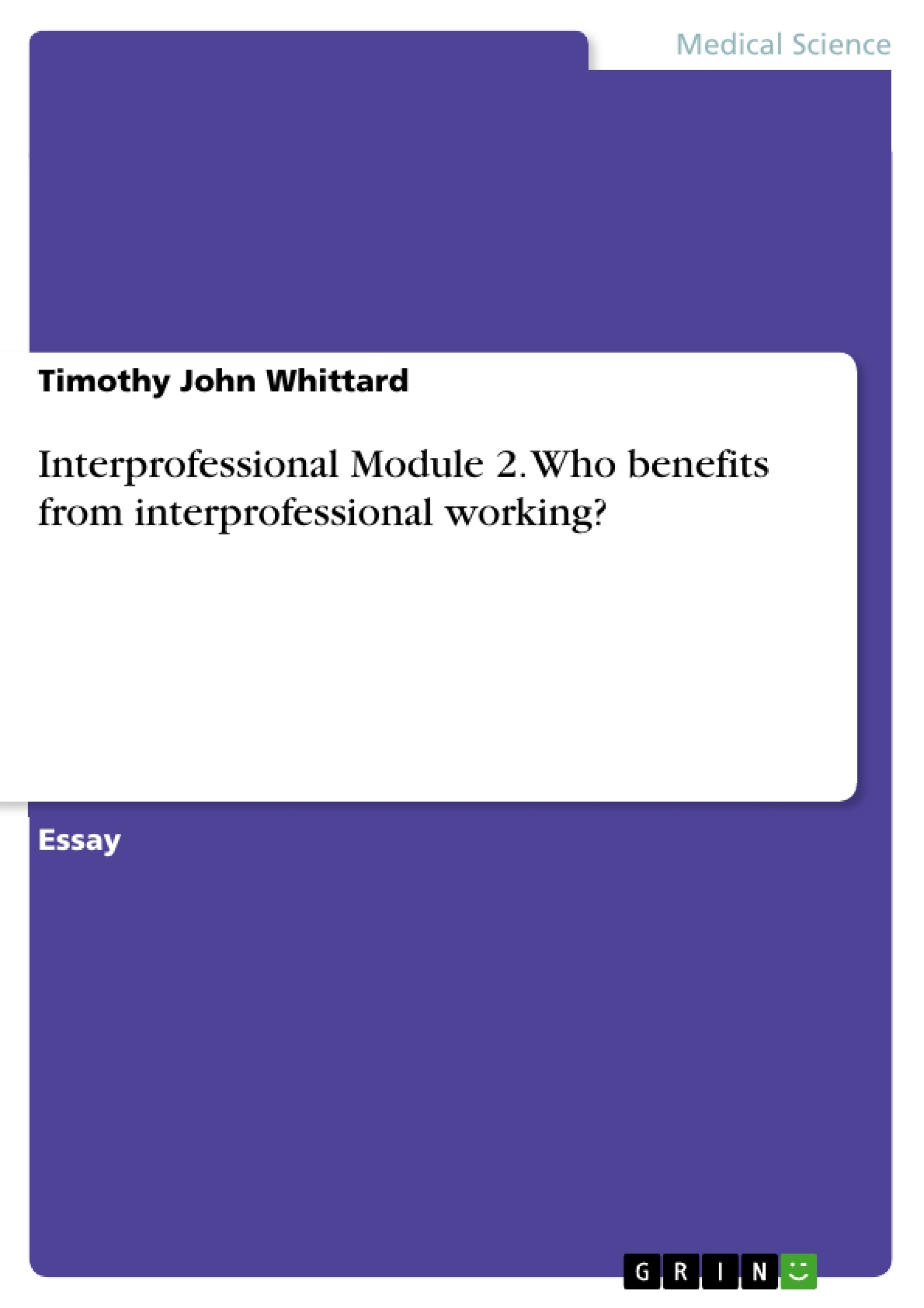The following goal was explored within the interprofessional group:
Who benefits from interprofessional working?
The learning outcomes selected by the group were:
Explore ways to promote user participation within the provision of services.
Promote and establish effective communication and working in teams to achieve interprofessional collaboration.
Inhaltsverzeichnis (Table of Contents)
- Interprofessional Module 2
- What have you learned during this module?
- Pick an article and relate it to one statement.
Zielsetzung und Themenschwerpunkte (Objectives and Key Themes)
This document details the learning outcomes and key themes of an interprofessional module focusing on collaborative work between healthcare professionals.
- The importance of interprofessional collaboration in improving patient care.
- The role of communication in successful interprofessional working.
- The challenges and benefits of interprofessional education.
- The need for effective leadership in interprofessional teams.
- The significance of patient involvement and participation in healthcare.
Zusammenfassung der Kapitel (Chapter Summaries)
- Interprofessional Module 2: This section outlines the learning outcomes of the interprofessional module and introduces the key statements explored by the group. It emphasizes the benefits of collaborative working in healthcare.
- What have you learned during this module?: This chapter reflects on the personal learning experience gained from the interprofessional conference. The author highlights the importance of patient-centered care, effective communication, and team cohesiveness in interprofessional collaboration.
Schlüsselwörter (Keywords)
This work examines interprofessional collaboration, patient care, communication, interprofessional education, leadership, team cohesiveness, patient involvement, and professional stereotyping.
Frequently Asked Questions
What is the central question explored in Interprofessional Module 2?
The module focuses on the question: "Who benefits from interprofessional working?" within healthcare settings.
What are the primary learning outcomes of this interprofessional group?
The outcomes include exploring ways to promote user participation in services and establishing effective communication and teamwork to achieve collaboration.
Why is patient-centered care important in interprofessional collaboration?
Patient-centered care ensures that user participation is at the heart of service provision, leading to better healthcare outcomes and more effective interprofessional teams.
What role does communication play in interprofessional teams?
Effective communication is essential for team cohesiveness and successful collaboration between different healthcare professionals.
What are professional stereotypes in healthcare?
The document touches upon professional stereotyping as a potential challenge that interprofessional education aims to address to improve teamwork.
- Citar trabajo
- Timothy John Whittard (Autor), 2006, Interprofessional Module 2. Who benefits from interprofessional working?, Múnich, GRIN Verlag, https://www.grin.com/document/475181



